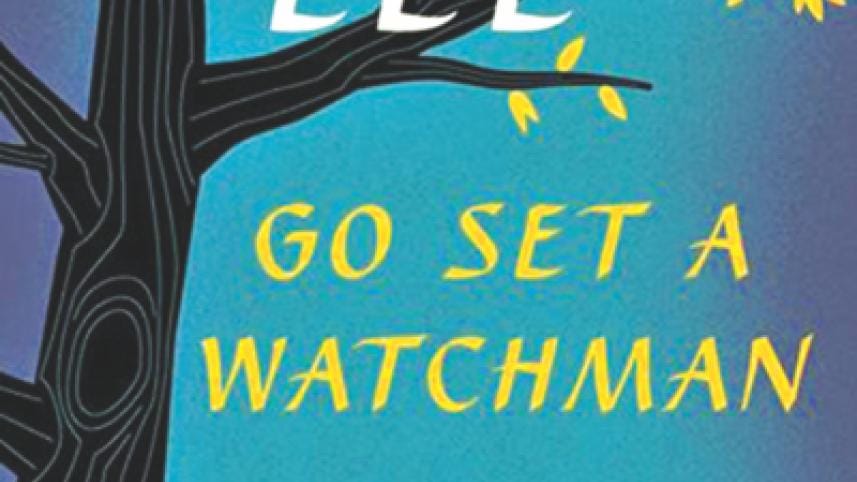Go Set a Watchman

After reading Harper Lee's now famous sequel (or prequel) to Mockingbird, Go Set a Watchman, I think the first thing one notices is the mass confusion in Scout, now a 26-year old living in New York and coming back to Maycomb to discover and grapple with the bigotry inherent in the people of her hometown barring none, including Atticus. The ending is too abrupt and she raves at the racism but reconciles to keep loving the family and friends in her hometown.
"Though the new book is, to be blunt, a string of clichés, some of them are clichés only because, in the half century since Lee's generation introduced them, they've become clichés; taken on their own terms, they remain quite touching and beautiful." (Adam Gopnik,The New Yorker)
The total absence of Boo Radley, the mysterious neighbor and Dill's (Lee's real life best friend Truman Capote) presence only in flashback are shortcomings of this book. The character of Henry Clinton, Scout's love interest, is a welcome addition though.
Apparently the new book is the 'parent' of Mockingbird, as her publisher/editor, not happy with the manuscript of Go Set a Watchman asked her to concentrate on the childhood of Scout Finch. That's how To Kill a Mockingbird materialized.
"Would it have been better for this earlier novel to have remained unpublished? Though it does not represent Harper Lee's best work, it does reveal more starkly the complexity of Atticus Finch, her most admired character. Go Set a Watchman demands that its readers abandon the immature sentimentality ingrained by middle school lessons about the nobility of the white savior and the mesmerizing performance of Gregory Peck in the film adaptation of "To Kill a Mockingbird.""
(From The New York Times)
I think it was right to publish the book even if only to break the myth of 'superhuman' attached to Atticus and for people to realize that in defending Tom Robinson in "Mockingbird" he was only making sure that an innocent man was not getting punished by a society that was happy living in its bigotry even though he was himself happily living in that society as a passive participant. Atticus Finch just ensured that Tom was not accused for a crime he had not committed, and not a 'savior' fighting for the blacks of his hometown of Maycomb.
In his arguments with Scout, Atticus, staying faithful to the bigoted high ideals of the South of his time (some would say even now), is heard saying,
""Jean Louise," Atticus says in the midst of their argument, "have you ever considered that you can't have a set of backward people living among people advanced in one kind of civilization and have a social Arcadia?""
He goes on
"Jefferson believed full citizenship was a privilege to be earned by each man, that it was not something given lightly nor to be taken lightly. A man couldn't vote simply because he was a man, in Jefferson's eyes. He had to be a responsible man."
He at least considered the black man fully human, just not yet ready to vote.
The ambivalence in Jean Louise Finch (Scout) is also very obvious and not dealt with in the vividity it deserved. Asked about the Supreme Court decision (Brown vs Board of Education, surely), she says, "Well sir, there they were, tellin' us what to do again."
The new book is not great by any means but is a must read for people who adore 'To Kill a Mockingbird', both the book and the movie. It would be time better spent than watching some dumb programming on TV.
However, one may never look at To Kill a Mockingbird the same way as before ever again.
The reviewer is a freelance contributor.



 For all latest news, follow The Daily Star's Google News channel.
For all latest news, follow The Daily Star's Google News channel.
Comments